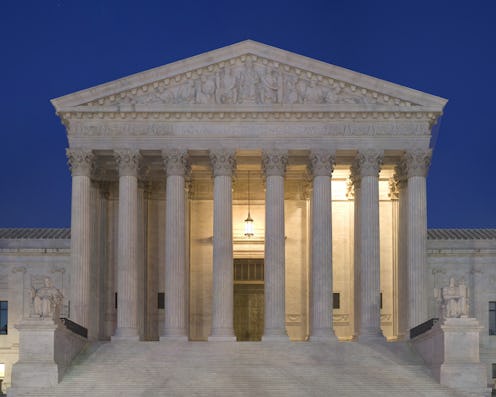
Though four gun control bills are expected to be voted down on Monday, Connecticut and New York will retain their statewide assault weapons bans after the U.S. Supreme Court denied a gun rights group's challenge to it. The law was implemented in April 5, 2013 by Gov. Dannel Malloy after the horrific Sandy Hook massacre that resulted in the deaths of 20 children and six adult staff members. Though the petition was filed in February 2016, the June 12 mass shooting at a gay nightclub in Orlando that resulted in the death of 49 people has contributed immediacy to the nationwide gun control debate. The attack, which was committed with an AR-15 semi-automatic rifle, has been rendered the deadliest mass shooting in American history.
Connecticut's assault weapon and high-capacity magazine ban is similar to the federal ban that ended in 2004. Though the Republican-controlled House has voted against reinstituting the federal ban in the years since — most recently in 2013 — individual states retain the right to pass their own laws. Four individuals, a business, and two Second Amendment rights groups brought the case, Shew v. Malloy, to the Supreme Court of the United States. Initially, they planned to battle the high-capacity magazine ban as well, but chose instead to focus on one issue at a time. In its response to the petition, the court outlined its reasoning for refusing to hear the case.
According to the court, Connecticut's ability to ban assault weapons isn't a source of contention among the appeals courts. Each of them agree the state's law is constitutional and in line with the Second Amendment. Secondly, the ban only applies to "a small subset of semiautomatic weapons possessed by a small percentage of civilian gun owners," the court wrote. Therefore, it explained, its scope isn't far-reaching enough to warrant a reconsideration of the law.
Currently, seven states ban assault weapons: Connecticut, California, Hawaii, Maryland, Massachusetts, New Jersey, and New York. Local assault weapons bans have also been enacted in the District of Columbia, as well as in parts of Indiana and Illinois.
This isn't the first time Connecticut's views on guns have been in the news over the past week. Most recently, Connecticut Sen. Chris Murphy filibustered Congress for nearly 15 hours, calling upon House Republicans to hear two gun control amendments: one that would strengthen background checks for gun buyers and one that would make it illegal to sell a gun to anyone who's been on the terrorist watch list. Despite Democrats' hope that Congress will take action to combat the mass shooting trend, both measures, along with two others proposed by Republicans, are expected to fail on Monday.
The Republican-proposed measures include one that would make it more difficult to add mentally-ill individuals to the background check database. The second would mandate that law enforcement be notified when someone on the terrorist watch lists buys a gun or attempts to buy one. Though state gun laws will likely remain in place, Second Amendment enthusiasts have effectively blocked the same laws from being passed on a federal level.